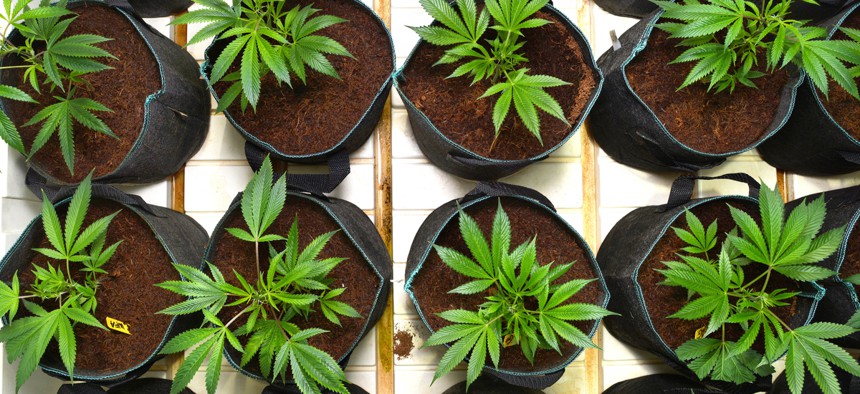New Mexico Boosts Cap for Medical Marijuana Growers

New Mexico legislators legalized medical marijuana in 2007 but have not revisited plant limits since 2014 despite growing patient enrollment. Shutterstock
The increase is temporary as state officials determine a permanent cap that will keep pace with growing patient enrollment.
Regulators in New Mexico are taking emergency action that temporarily increases plant limits on the state’s medical marijuana producers amid ongoing legal wrangling over supply and patient demand.
The 180-day ruling, issued Friday, temporarily raises the plant-per-grower cap from 450 to 2,500. The ruling came in response to a November court decision that struck down the 450-plant limit as “arbitrary” and gave the state Department of Health four months to enact a new maximum, backed up by data. The department asked for an extension, which the judge denied.
The ruling came just before the 450-per-grower cap was set to expire, which state officials said would have allowed producers “unfettered authority” to grow unlimited amounts of marijuana, a situation the state “cannot countenance.”
“The department has determined regulation of cannabis production is necessary to ensure the health and safety of New Mexico residents,” Health Secretary Kathyleen Kunkel wrote in a letter explaining the move. “Further, regulation will help to ensure that our state’s citizens may access medical cannabis without fear of interference from the federal government.”
The ruling will expire in 180 days, after which the health department is expected to propose a permanent cap. It’s the latest development in an ongoing debate over supply and demand in New Mexico’s medical marijuana industry, which was legalized by state legislators in 2007. Before November’s court decision, the health department had not revised plant limits since 2014 despite growing enrollment in the program.
The most recent assessment from the state indicated low supplies of medical cannabis (2.9 million units, down from more than 4 million in December 2017) while the number of registered patients has increased (from 46,645 to 68,995 in that same time period). That drops the cannabis available per patient to less than 1 ounce, which producers have argued is insufficient based on the state administrative code that defines an adequate supply as consisting of “uninterrupted availability of cannabis for a period of three months or 90 consecutive calendar days.”
Ultra Health, the state’s largest producer of medical marijuana, praised the increased plant limit but cautioned that any permanent caps should be based on empirical data and research of marijuana supply and patient demand.
“We recognize that a new regulation must be more sophisticated than a mere multiple of the former inadequate limitation,” Duke Rodriguez, the company’s CEO and president, said in a statement. “We look forward to working collaboratively with the state to develop a rule consistent with patient needs by providing meaningful data and research from the experience of accessible medical markets in other states.”
Kate Elizabeth Queram is a Staff Correspondent for Route Fifty and is based in Washington, D.C.
NEXT STORY: 'Free College' Is Increasingly Popular—and Complicated for States





